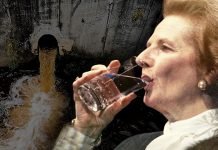
What is a ‘climate emergency’ – and what are MPs voting on today?
MPs are set to debate a Labour motion for Parliament to declare an emergency and pledge to act “with commensurate urgency” to tackle rising temperatures and wildlife loss.
It also calls on the government to set a new target to reach net zero emissions before 2050, boost renewable energy, low carbon technology and green jobs, and bring in urgent measures to restore nature and cut waste.
‘It is a great first step because it sends a clear signal that we are in a crisis and that the ongoing climate and ecological crises must be our first priority,’ says activist Greta Thunberg
Theresa May must put the country and politicians on a “war footing” to avert the disasters of climate change, the former Labour leader Ed Miliband has declared as MP’s gear up to vote on whether to declare a “climate emergency”.
His remarks come after the Extinction Rebellion – the international movement that says we “are in a life or death situation of our own making” – brought areas of central London to a standstill in recent weeks.
Speaking in the wake of climate strikes by young people and the wave of protests by Extinction Rebellion, the Labour leader will open an opposition day debate on Wednesday by also seeking a so-called green industrial revolution to transform the economy.
“Today this house must declare an environment and climate emergency,” he will say, according to extracts of the speech released in advance.
“We have no time to waste. We are living in a climate crisis that will spiral dangerously out of control unless we take rapid and dramatic action now.”
What is a “climate emergency?”
There appears to be no single definition of a “climate emergency”, but it is generally agreed among those calling for the motion that climate change represents the greatest threat to all walks of life, including national security, the economy, social well-being, and the natural environment.
While symbolic such a declaration by an authority or government would recognise the life-threatening risks that will come with inactivity over climate change.
At the end of 2018, the United Nations secretary general António Guterres said climate change “is the defining issue of our time”, and said the planet faces a “direct existential threat”.
Will it succeed?
To pass it is likely to require the support of Conservative MPs, who will be under immense pressure to back the demand. But – as a general rule – Tory MPs do not usually vote in favour in motions put forward by Labour during opposition day debates in the House of Commons.
Though many campaigners and activists will be expecting MPs of all colours to be putting aside tribal politics and declare a “climate emergency”. If it is voted down, expect an almighty row to follow.
What happens if MPs pass the motion?
Labour believes by declaring a “climate emergency” a wave of action could be set off in parliaments around the globe and recognise the magnitude of the threat faced by climate change.
The motion also calls on the government to alter its climate change change targets and achieve net zero emissions before 2050.

Jeremy Corbyn on Extinction Rebellion
Describing Extinction Rebellion, whose activists blocked streets and bridges around London for days, as “a massive and necessary wake-up call”, Corbyn said: “Today, we have the opportunity to say: ‘We hear you.’
“Parliament rarely leads change, it usually drags its feet. Think about the huge transformations to our society: workers’ rights, women’s rights, gay rights.
“The impetus has always come from outside, from social movements and communities, while Westminster is often the last place to understand it. Let’s not repeat that pattern. Let’s respond to the younger generation, who are raising the alarm.
“By declaring a climate emergency, we could set off a wave of action from parliaments and governments around the world. It’s a chance that won’t be available to succeeding generations. It is our historic duty to take it,” he will say.
The Labour leader will also call for significant investment in new technologies and green industries: “The hidden hand of the market is not going to save us. Technological solutions are not going to magically appear out of nowhere.
“An emergency of this magnitude requires large-scale government intervention to kickstart industries, to direct investment and to boost research and development in the green technologies of the future.
“The solution to the crisis is reprogramming our whole economy so that it works in the interests of both people and the planet. This is not a time for despair. It is a time for action.”
Support Independent Journalism Today
Our unwavering dedication is to provide you with unbiased news, diverse perspectives, and insightful opinions. We're on a mission to ensure that those in positions of power are held accountable for their actions, but we can't do it alone. Labour Heartlands is primarily funded by me, Paul Knaggs, and by the generous contributions of readers like you. Your donations keep us going and help us uphold the principles of independent journalism. Join us in our quest for truth, transparency, and accountability – donate today and be a part of our mission!
Like everyone else, we're facing challenges, and we need your help to stay online and continue providing crucial journalism. Every contribution, no matter how small, goes a long way in helping us thrive. By becoming one of our donors, you become a vital part of our mission to uncover the truth and uphold the values of democracy.
While we maintain our independence from political affiliations, we stand united against corruption, injustice, and the erosion of free speech, truth, and democracy. We believe in the power of accurate information in a democracy, and we consider facts non-negotiable.
Your support, no matter the amount, can make a significant impact. Together, we can make a difference and continue our journey toward a more informed and just society.
Thank you for supporting Labour Heartlands











